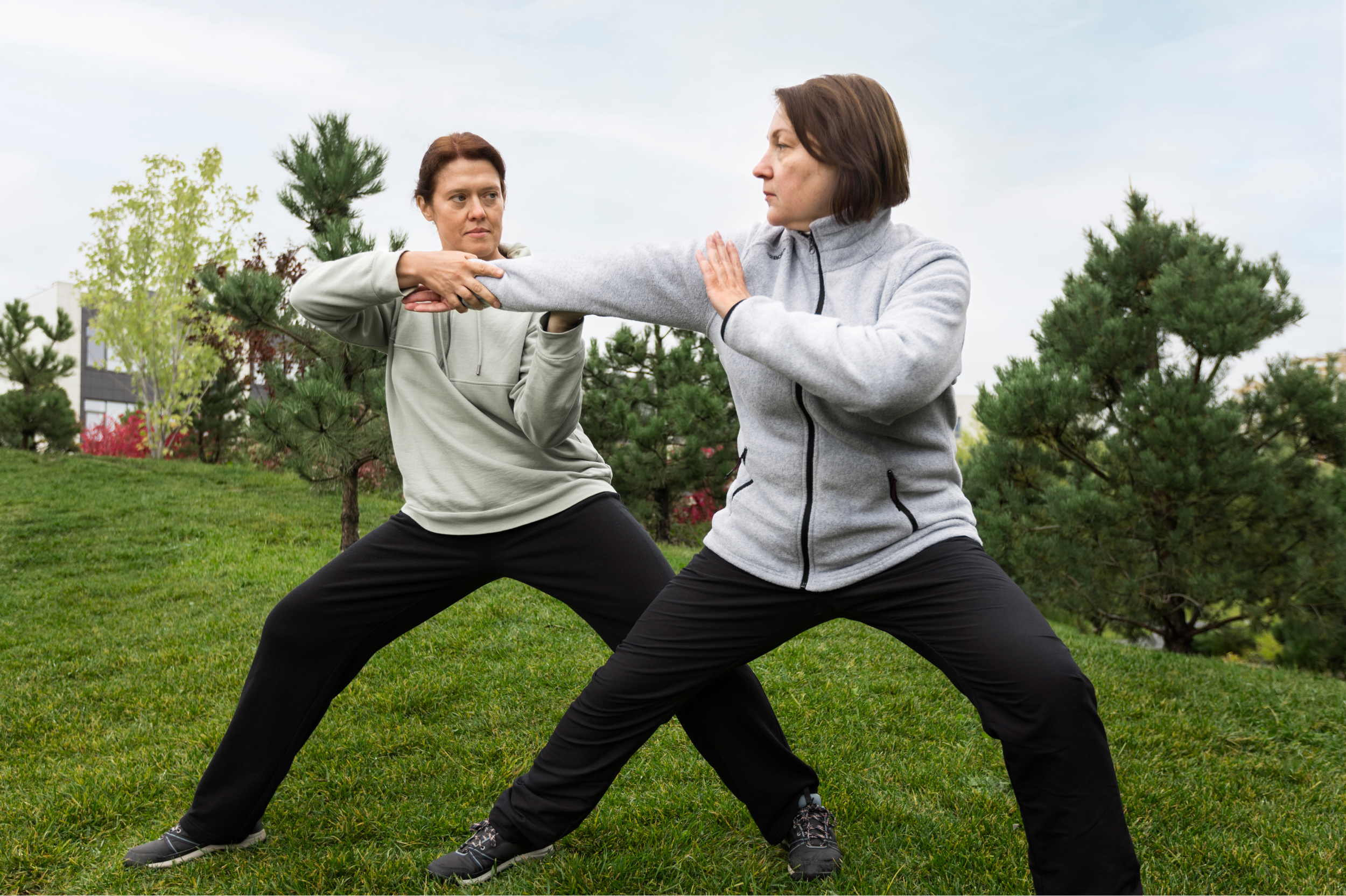
Therapr Team
Qi Gong, an ancient form of exercise originating from traditional Chinese medicine, has long been associated with health and longevity. The practice involves the cultivation of Qi (vital life energy) through movements, controlled breathing, and meditation. In recent years, it has gained popularity in the West as a holistic approach to improving energy levels, reducing stress, and promoting overall health. In this article, we will delve into the modern benefits of Qi Gong, demonstrating how this ancient practice can still be highly effective today for enhancing vitality and promoting a long and healthy life.
Qi Gong (pronounced "chee gong") is an ancient Chinese practice that combines breath control, movement, and meditation to cultivate and balance the body's vital energy, known as Qi. The practice can be seen as a form of mind-body exercise that aims to harmonize the body, mind, and spirit. It consists of gentle movements and breathing techniques designed to move energy through the body and restore balance. Qi Gong has a deep philosophical and spiritual foundation, but modern practitioners often engage in it for its therapeutic benefits, including increased energy, stress relief, and overall health improvement.
Boosts Energy Levels
One of the most immediate benefits of Qi Gong is its ability to boost energy. The practice of moving the body in specific ways while focusing on deep, controlled breathing helps activate the body's energy system. By improving the flow of Qi, Qi Gong enhances vitality and reduces fatigue. Many practitioners report feeling more energized after a Qi Gong session, as the gentle movements stimulate the body’s natural energy reserves.
Promotes Longevity
Qi Gong has long been associated with longevity in Chinese culture. The practice helps balance the body's internal energy, promote circulation, and support the immune system, all of which contribute to longer, healthier life. Regular practice is believed to slow the aging process by improving overall body function, reducing inflammation, and keeping the body’s systems in harmony. Research has shown that Qi Gong may help regulate the body's hormones and improve cell function, both of which play a key role in longevity.
Reduces Stress and Anxiety
Chronic stress is one of the leading causes of many health problems, including heart disease, high blood pressure, and digestive issues. Qi Gong is well-known for its stress-relieving properties. By focusing on deep breathing and slow movements, practitioners can activate the body’s parasympathetic nervous system, which promotes relaxation and reduces the body’s stress response. The meditative aspect of Qi Gong also helps calm the mind, reduce anxiety, and increase mental clarity.
Improves Balance and Coordination
Qi Gong involves slow, deliberate movements that require focus and concentration. This has been shown to significantly improve balance, coordination, and overall body awareness. As we age, maintaining physical stability becomes increasingly important. Practicing Qi Gong regularly can help prevent falls, improve posture, and enhance motor coordination, which are particularly beneficial for older adults.
Enhances Flexibility and Joint Health
The fluid movements of Qi Gong encourage gentle stretching and mobility, which help improve flexibility and joint health. Regular practice can reduce stiffness, promote better range of motion, and alleviate joint pain, especially in areas like the knees, hips, and lower back. This makes Qi Gong a particularly good choice for individuals suffering from arthritis, muscle tightness, or other chronic pain conditions.
Supports Cardiovascular Health
Qi Gong is a low-impact exercise that can improve cardiovascular health. The combination of slow movement and deep breathing helps to lower blood pressure, improve circulation, and reduce cholesterol levels. For those with heart conditions or high blood pressure, Qi Gong offers a gentle way to improve heart health without the strain of more intense physical activity.
While Qi Gong has been practiced for thousands of years, modern scientific studies are beginning to uncover the physiological benefits of the practice. Research has shown that regular Qi Gong practice can enhance immune function, improve heart health, and help regulate blood sugar levels. Additionally, studies suggest that it can help manage conditions such as chronic pain, insomnia, and high blood pressure. The practice of Qi Gong is thought to work by improving the flow of Qi in the body, which promotes health at a cellular level and contributes to overall well-being.
Qi Gong is accessible to people of all ages and fitness levels. If you’re new to the practice, start with a beginner class or find instructional videos that guide you through basic movements. Most Qi Gong routines are relatively simple and do not require specialized equipment, making it easy to incorporate into your daily routine. The key is consistency—aim to practice for 15-30 minutes each day to experience the full benefits.
Qi Gong is generally safe for most people, but like any form of exercise, it’s important to start slowly and listen to your body. If you have any pre-existing medical conditions, it’s advisable to consult with your doctor before beginning any new physical activity, especially if you have heart problems, joint issues, or chronic health conditions. It’s also important to practice Qi Gong in a safe environment where you can focus without distractions.
Qi Gong is a powerful practice that offers numerous benefits for energy, longevity, and overall health. Its combination of gentle movement, deep breathing, and meditation can improve both physical and mental well-being. Whether you are seeking to increase your energy levels, reduce stress, improve flexibility, or enhance cardiovascular health, Qi Gong provides a holistic solution that can be easily integrated into daily life. By practicing Qi Gong regularly, you can cultivate better health and enjoy a longer, more vibrant life.
Author profile
Read more articles by Therapr Team.
Get the latest wellness insights delivered to your inbox.
Subscribe to Newsletter